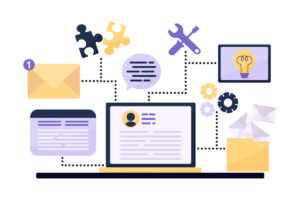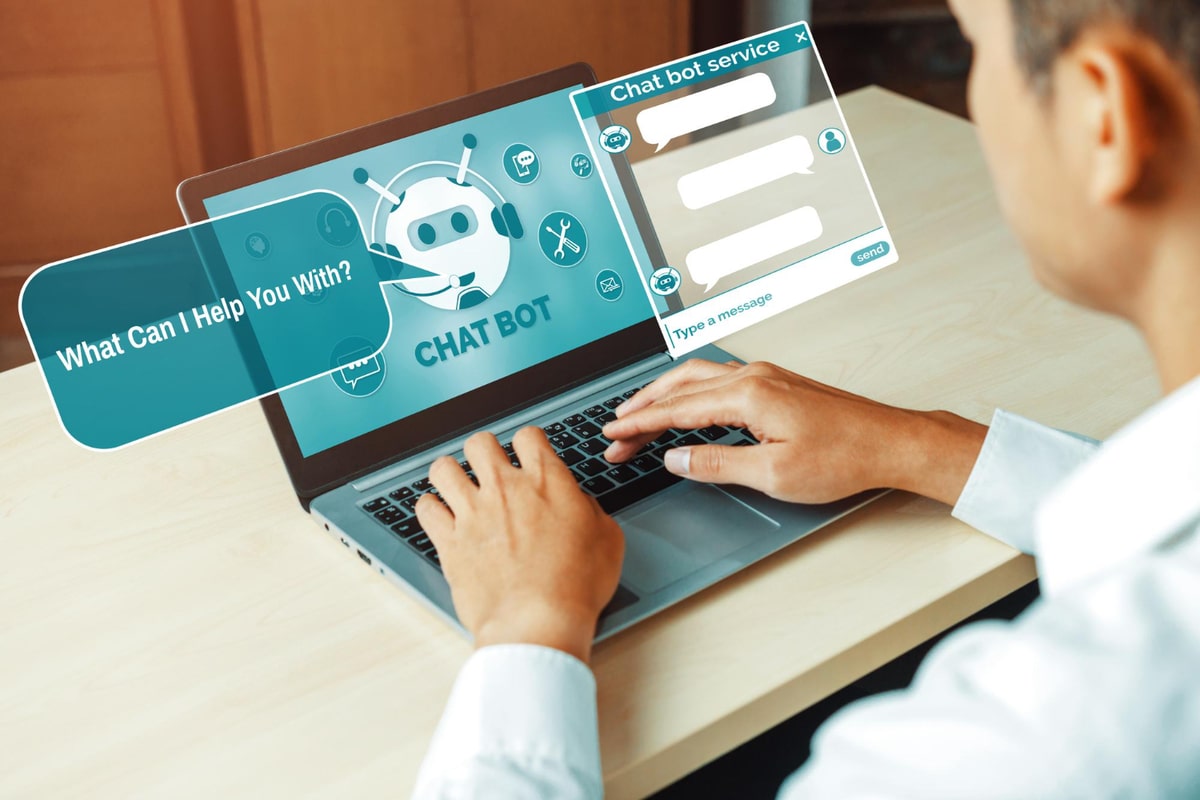The digital shopping journey has changed dramatically in recent years. Customers now expect instant assistance, personalized recommendations, and seamless experiences across every touchpoint. To meet these expectations, eCommerce businesses are increasingly turning to AI chatbot solutions. These intelligent systems not only improve customer support but also play a critical role in driving sales and long:term loyalty.
Modern chatbots, built with advanced AI chatbot development services, go far beyond answering FAQs. They can handle complex queries, recommend products, guide purchases, and even automate after:sales service. For retailers wondering about the cost of chatbot development, the return on investment becomes clear when these systems begin to generate measurable increases in conversions and customer satisfaction.
In this article, we explore the top seven use cases of AI chatbots in eCommerce stores, showcasing how they enhance shopping experiences and fuel revenue growth.
1. Personalized Shopping Assistance
AI chatbots can serve as virtual shopping assistants, guiding customers with tailored suggestions.
Key ways they drive value:
- Preference:based recommendations: Chatbots ask simple questions about needs and preferences.
- Browsing history analysis: They use past interactions to suggest relevant items.
- Upsell opportunities: By suggesting upgrades or bundles, chatbots raise cart values.
When powered by an experienced AI chatbot development company, these assistants create a personalized journey that feels human:like and customer:centric.
2. Instant Customer Support
Customers want answers fast, and delays can result in lost sales. Chatbots ensure help is always available.
How chatbots improve support:
- 24/7 availability: Customers get help at any time, across time zones.
- Order tracking assistance: Chatbots quickly pull order status without manual effort.
- Fewer drop:offs: Fast resolutions reduce frustration and abandoned carts.
By engaging an AI chatbot developer, eCommerce brands can deliver smoother support while lowering the need for large human support teams.
3. Cart Recovery and Abandoned Checkout Reminders
Cart abandonment is one of the biggest challenges in online retail. AI chatbots can reduce lost sales by nudging customers back.
Effective strategies include:
- Proactive reminders: Sending a polite message if a customer leaves items behind.
- Discount triggers: Offering time:sensitive discounts to complete purchases.
- Hesitation handling: Providing answers to shipping or return:related doubts.
Working with a chatbot development service allows businesses to automate recovery campaigns that directly impact revenue.
4. Streamlined Product Discovery
Finding the right product quickly is critical in large eCommerce catalogs. AI chatbots simplify discovery through conversational search.
Practical use cases:
- Conversational search queries: “Show me a dress under $50 for evening wear.”
- Curated lists: Chatbots generate a refined list instead of overwhelming users.
- Improved navigation: Customers save time, which boosts satisfaction and sales.
Partnering with a chatbot development agency ensures smooth integration with existing inventory systems.
5. Multilingual Customer Engagement
Global customers shop in multiple languages, and catering to them increases market reach.
Advantages of multilingual chatbots:
- Inclusive experiences: Shoppers can interact in their preferred language.
- Higher trust: Customers feel valued when addressed in familiar terms.
- Market expansion: Businesses can attract international audiences seamlessly.
Multilingual AI chatbot development services make it easier to serve customers worldwide without building separate support teams.
6. Post:Purchase Assistance
Customer engagement does not end at checkout. Post:purchase support ensures repeat sales and loyalty.
Chatbot:powered support can handle:
- Shipping updates: Real:time notifications reduce customer anxiety.
- Easy returns and refunds: Simplifying policies builds customer trust.
- Product usage tips: Assisting customers on how to maximize purchases.
Retailers exploring how much does it cost to develop a chatbot often find that post:purchase services alone justify the investment.
7. Upselling and Cross:Selling Opportunities
AI chatbots can smartly encourage customers to spend more by suggesting related or premium products.
Common strategies include:
- Upselling upgrades: Offering premium versions of selected items.
- Cross:selling bundles: Suggesting matching accessories or related products.
- Personalized promotions: Tailored offers based on purchase history.
An AI chatbot development company ensures these strategies are subtle and customer:friendly, so they feel like guidance rather than pressure.
Beyond eCommerce: Cross:Industry Inspiration
Though this article focuses on online retail, AI chatbots are making strides in other sectors too.
- Manufacturing: Chatbot use cases in manufacturing include equipment monitoring and employee training.
- Healthcare: An AI medical chatbot can provide reliable health guidance and appointment scheduling.
These applications highlight the flexibility of chatbot technology, inspiring retailers to experiment with innovative approaches.
Benefits of AI Chatbots in eCommerce
| Benefit | Description |
| 24/7 Availability | Customers can get answers anytime, removing dependency on working hours. |
| Scalability | Chatbots handle thousands of queries without additional staffing. |
| Cost Efficiency | Reduced operational costs while improving customer engagement. |
| Personalized Recommendations | Intelligent suggestions lead to higher conversions and average basket size. |
| Data:Driven Insights | Provides analytics that improve marketing, inventory, and pricing decisions. |
How to Choose the Right AI Chatbot Partner
The provider you choose determines how effective your chatbot implementation will be.
Checklist when choosing a partner:
- Experience in eCommerce: Look for proven projects in online retail.
- Customization: Avoid generic solutions, choose tailored features.
- Scalability: Ensure future upgrades are possible.
- Track record: Review case studies and testimonials.
Brands often collaborate with a chatbot development agency for faster deployment and long-term support.
Conclusion
AI chatbots are now essential for online retail growth. They personalize shopping, recover abandoned carts, streamline product searches, and provide continuous support, all of which lead to higher sales and improved customer loyalty.
Whether you are evaluating the cost of chatbot development or selecting the right provider, the key is to focus on long:term value. A trusted AI chatbot development company can transform your chatbot from a support tool into a sales powerhouse.











